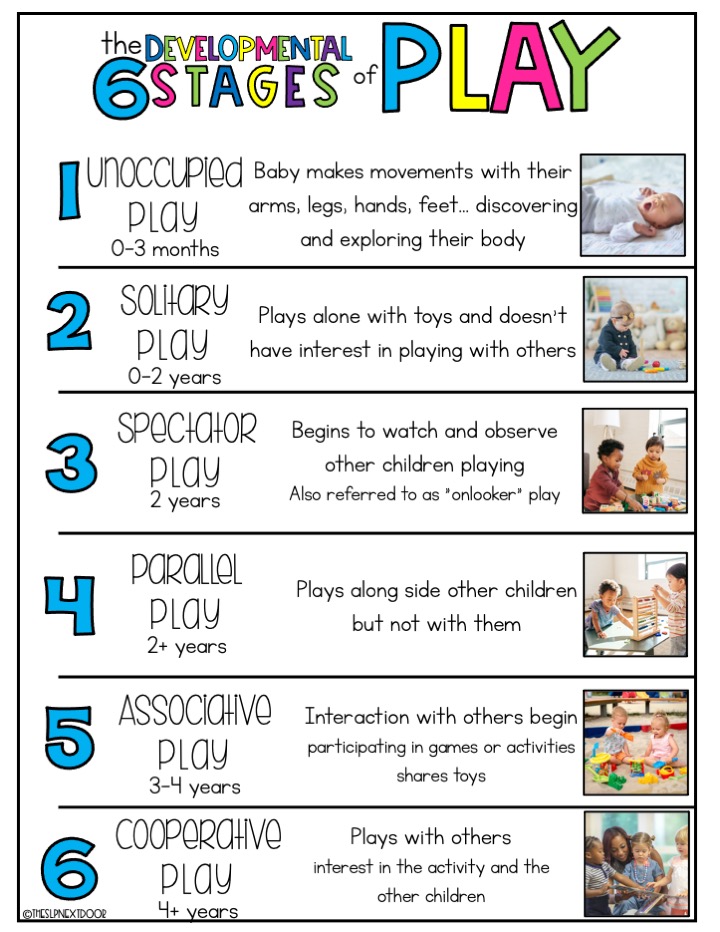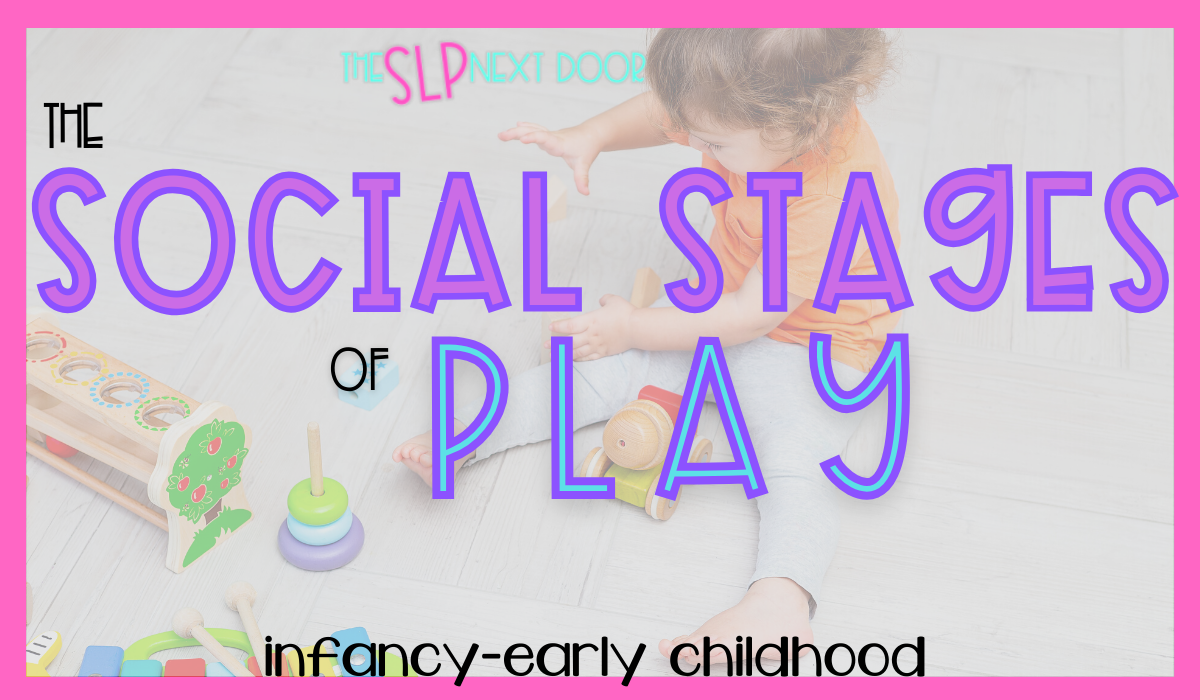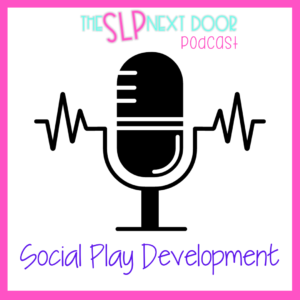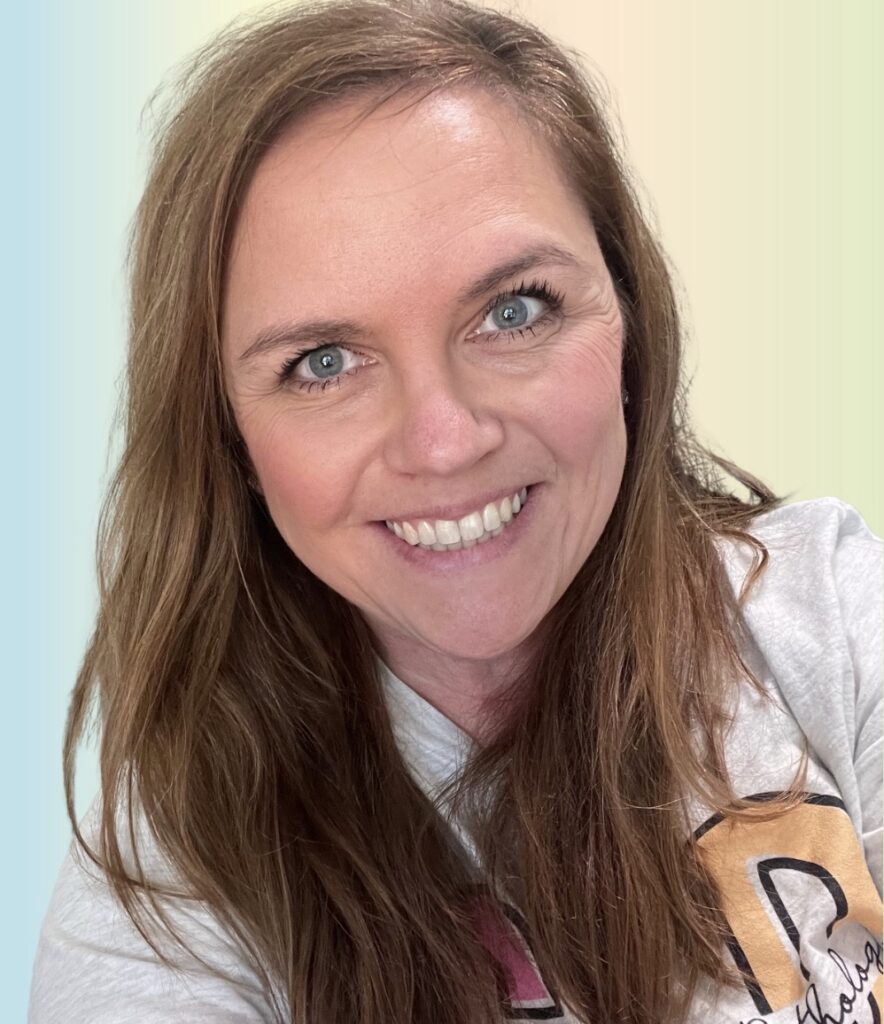Podcast: Play in new window | Download () | Embed
Join the Neighborhood RSS
What is play?
More importantly– what are the different stages of play?
The oxford language dictionary defines play as [a verb] “engagement in an activity for enjoyment and recreation rather than serious or practical purposes” and [a noun] “an activity engaged in for enjoyment and recreation, especially by children”. Play offers adults a window into early childhood development using a noninvasive approach [observations or interactions] to gather information about all kinds of developmental milestones including: symbolic skills, linguistic [language] skills, and behavior development. All in a child friendly setting! (Fewell & Rich, 1987).
The different stages of play are important. Understanding the different stages of play is vital when it comes to planning play based approach speech therapy sessions. Remember, with this age group, progress shows up in the minor details.
Different Types of Play
For the sake of this post, I’ll be glancing over these 6 stages of play development. This post is meant to give general information about development in play. The different stages of play will be explained in more detail in individual posts.
You can also check out a quick video explanation here!
Unoccupied Play– occurs from 0-3 months. During unoccupied play, babies make a lot of movements with their arms, legs, hands, and feet. Essentially, they are beginning to discover how their bodies move.
Solitary Play– 0-2 years. As the name says “solitary”, babies and toddlers will play alone and aren’t interested in playing with others.
Spectator Play– 2 years. Spectator play or “on-looker play” occurs around 2 years old. Toddlers will begin to watch and observe other children playing….but they still do not play with them.
Parallel Play– 2 years old and up. Parallel play occurs when toddlers play along side others but do not play with them. For example, you may have several children working on puzzles or playing on playgrounds but they aren’t playing with one another.
Associative Play– 3-4 years old. Associative play is when interactions with others begin. Toddlers will participate in games and [sometimes] share toys with others.
Cooperative Play– 4 years and up. Cooperative play is often what we think of when someone says “play”. Children participate in turn-taking, games, show an interest in other children, and interact together.

Different Stages of Play in Speech Therapy
I remember when I first started home health and began with early intervention speech. (where I am located the government funded program isn’t going so well [to say the least] and we are getting a lot of early intervention candidates in the private home-health sector.) I thought “okay awesome- let’s play!”
What I didn’t understand was that it’s not just about “playing”. I found myself getting frustrated at the lack of progress- or so I thought.
I didn’t understand the development of play milestones. A 2 year old playing in their own world is totally appropriate! Sure, they might notice the others in the room- but – they aren’t going to necessary engage with them. What’s important is that they are using the cognitive skills to problem solve the toy they are engaged with, right? That’s a big difference than expecting them to engage directly with me during sessions.
Understanding the different stages of play in early childhood development not only helps us to better understand progress in our speech therapy: it helps write early intervention speech goals, plan play-based speech therapy sessions, and encourages communication with parents about their little one’s progress.
Have you snagged your copy of the FREE printable 6 Stages of Play Handout? It’s perfect for personal reference and a great printable handout for parents!




8 Responses